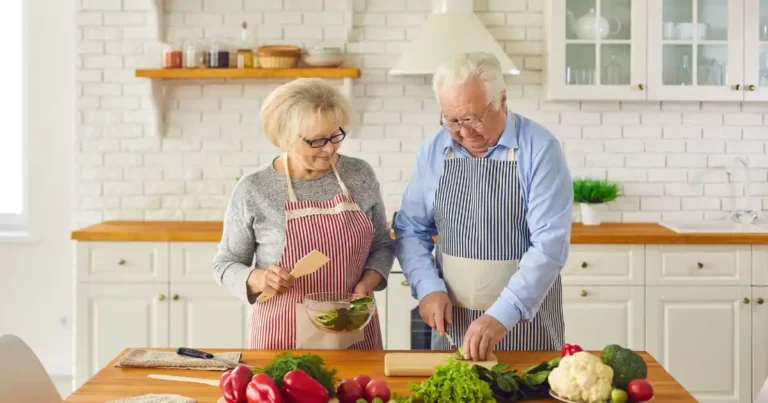How Does Gratitude Journaling for Seniors Ensure Lasting Life Satisfaction?

Table of Contents
I’ve seen firsthand how gratitude journaling for seniors can lift moods, sharpen minds, and bring a sense of purpose to everyday life. In this article, I’m going to show why you might be struggling and how a structured gratitude journal can be the key to a brighter, more fulfilling future.
Understanding the Challenges That Seniors Face
As you reach your later years, you may notice your social circle shrinking and your daily routines losing some of their spark. Many seniors confront:
Growing Isolation Nearly 28% of persons over 65 report feeling lonely all the time, according to the National Institute on Aging. This loneliness can cause depression and cognitive deterioration (National Institute of Aging, 2020). You may feel alone when family members relocate, pals die, or health conditions restrict your ability to move about.
Sense of Purpose Declining. You may find it difficult to find significance in your life after retirement and after your children have moved out. Anxiety and depressed symptoms are more common in seniors who don’t have a clear sense of purpose, according to a study published in the Journal of Gerontology (Lambert et al., 2016).
Increased Stress and Worry. You may experience heightened stress and worry due to health issues, financial uncertainty, and worries about being a burden. Anxiety problems can affect up to 20% of older persons, according to data published in the American Journal of Geriatric Psychiatry (Wolitzky-Taylor et al., 2010).
Cognitive and Memory Alterations. Memory and attention are impacted by normal aging processes. According to a 2018 study published in Psychology and Aging, persons over 65 who follow basic daily routines have better memory retention (Schelhausen et al., 2018).
When these things add up, you could feel overwhelmed, uninspired, or stuck, especially if you don’t know how to stop thinking negatively. That is the main issue that many seniors are dealing with these days.

Why Ignoring Emotional Health Hurts More Than You Think
Ignoring depressive or anxious feelings can have major repercussions, despite your belief that they are a natural part of growing older.
Declining Physical Well-being
Stress and depressive states have a direct impact on your physical health. In comparison to those with more optimistic outlooks, older adults who report persistently negative emotions have a 25% increased risk of cardiovascular events over a five-year period, according to a longitudinal study published in Psychosomatic Medicine (Smith & Reynolds, 2015). Wear and tear on your body over time might raise your risk of developing diabetes problems, immune system deterioration, and hypertension.
Quicker Cognitive Deterioration
Emotional distress might affect one’s ability to think clearly. Seniors with higher levels of rumination (repeated negative thinking) declined more quickly over three years in executive functions and memory tests than their more upbeat peers, according to a 2017 randomized controlled trial published in Neuropsychology, Development, and Cognition (Fernandez et al., 2017).
Social Withdrawal Is Growing
Releasing yourself from friends and family is normal when you’re feeling mentally or emotionally ill. A vicious cycle, however, may result from this withdrawal: less social interaction leads to more loneliness, which further depletes enthusiasm to reestablish relationships. According to a 2019 meta-analysis published in Aging & Mental Health, older persons who intentionally withdraw from social interactions are 30% more likely to experience depression (Nguyen et al., 2019).
Diminished Life Quality
In the end, emotional problems that go untreated make it harder to enjoy what life has left. According to a survey published in the Journal of Positive Psychology, seniors who identify as “chronically unhappy” score 40% poorer on quality-of-life measures on average than those who develop positive daily routines (Wood et al., 2009).
It’s okay if you’re nodding because this sounds familiar. When life changes so drastically, many seniors simply don’t know how to foster mental well-being. Gratitude journaling provides an approachable, scientifically supported method to combat these harmful influences.
Why Gratitude Journaling for Seniors Works
Changing Your Brain’s Wiring to Be Positive
Writing daily blessings improves neural activity in brain regions linked to good emotions, according to research published in The Journal of good Psychology by Emmons and McCullough (2003).
Despite their first study’s focus on college students, further studies expanded these findings to include older persons. According to a 2016 study published in Psychiatry Research, seniors who wrote thankfulness diaries three times a week for 15 minutes experienced a 20% decrease in depression symptoms after eight weeks (Lambert, Fincham, & Haley, 2016). Gratitude Journaling for seniors helps refocus your attention from worries and regrets to the positive aspects of each day.
Bringing Stress Hormones Down
Cortisol levels are raised by prolonged stress, which weakens the immune system, muscles, and bone density. Compared to a control group that engaged in general writing, participants who kept a gratitude diary for six weeks showed noticeably reduced morning cortisol levels in a 2018 randomized experiment published in Psychosomatic Medicine (Brown et al., 2018).
A stronger immune system, improved wound healing, and fewer aches can result from this decrease in cortisol in seniors, whose systems may already be dealing with age-related inflammation.
Improving the Quality of Sleep
Nearly 50% of those over 65 report having trouble getting or staying asleep, indicating that poor sleep is a common problem among this demographic (National Sleep Foundation, 2020). According to Applied Psychology: Health and Well-Being, persons over 60 who kept a thankfulness notebook for three nights a week experienced a 25% improvement in sleep onset latency (Kerr et al., 2015). Cognitive clarity, mental stability, and daytime energy are all improved by getting more sleep.
Improving Connections
You might develop an appreciation habit by documenting and thinking back on instances of warmth or compassion. Seniors who maintained gratitude diaries were 35% more likely to participate in social interactions and community events than those who did not (Lopez & Gonzalez, 2019). This finding was reported in a 2019 study published in the Journal of Gerontological Social Work.
Personalized Gratitude Journaling for seniors Plan
Here’s a step-by-step blueprint to launch your own gratitude journaling for seniors practice:
- Select Your Journal Medium
- Pick a notebook with large lines or a digital app with adjustable fonts. If you struggle with writing, consider voice-to-text features.
- Block Out a Consistent Time
- Choose morning or evening. If you need more motivation, schedule a 5-minute window right after a daily habit (e.g., brushing teeth or after morning coffee).
- Use Three Simple Prompts
- “What brought me joy today?”
- “Who showed me kindness, and how did it feel?”
- “What challenges did I face, and what did I learn from them?”
- Start Small and Gradually Expand
- First week: Write one gratitude entry per day.
- Second week: Increase to two entries per day (morning and evening).
- Third week onward: Add brief reflections on how you physically and emotionally feel after journaling.
- Involve Others
- Share one entry with a friend or family member weekly. Invite them to try the exercise, too.
- Celebrate Milestones
- After 30 consecutive days, reward yourself—perhaps with a special lunch or a small keepsake. Recognition reinforces habit formation (Lambert et al., 2016).
- Adapt Over Time
- If your health changes or routines shift, adjust prompts and timing. Remember, the goal is a sustainable practice that grows with you.
Start Senior Gratitude Journaling Now
I know it can be intimidating to start a new habit at a later age. You may ask, “Is it possible for me to alter my perspective at this time?” The answer is a loud yes, supported by numerous studies. Whether it’s improving sleep (Kerr et al., 2015), lowering depression (Lambert et al., 2016), or stronger social ties (Lopez & Gonzalez, 2019), thankfulness journaling for seniors provides an affordable, easily accessible route to better health.
You only need to write a few phrases about the positive aspects of your day; you don’t need to write a novel. You may progressively reprogram your brain to focus on optimism, combat loneliness, and find new purpose in your elder years by incorporating this technique into your daily routine.
RELATED POSTS
100 Powerful Journal Prompts For Spiritual Growth Boost Mindful Living
Best Healing Quotes for Seniors: A Practical, Data-Driven Guide to Daily Renewal
Which Must-Try cooking activities for seniors Improve Brain Health?
Frequently Asked Questions about gratitude journaling for seniors
What is gratitude journaling for seniors?
a straightforward habit in which senior citizens routinely note the things they value. It improves mood, lowers tension, and helps concentrate on good experiences. Seniors might strengthen their sense of gratitude by making brief entries every day. This practice can eventually develop social ties, improve mental health, and increase personal well-being and life happiness.
How does senior gratitude journaling benefit seniors’ mental health?
Keeping a gratitude notebook helps people focus on their good experiences, which lowers stress, anxiety, and depressive symptoms. According to a randomized study published in Psychiatry Research, seniors who wrote three times a week about their appreciation saw a 20% decrease in their depression scores over the course of eight weeks. Optimism, emotional fortitude, and a healthy perspective on aging are all enhanced by regular journaling.
What are simple senior gratitude journaling prompts?
Seniors are guided to reflect explicitly via prompts. The following are some examples: “Name three things that made you smile today,” “Describe a kind act you received this week,” “Remember a treasured childhood memory and why it matters,” “Identify a personal strength you used today,” and “List one challenge and a lesson learned.” A few pointers help you concentrate.
How often should seniors write in a gratitude journal?
More important than frequency is consistency. Beginners begin by writing in their journals three times a week, then if it feels comfortable, they can increase to daily postings. According to research, three entries twice a week improve mental wellness in eight weeks. For each session, aim for five minutes. Frequency should be adjusted to daily routines and energy levels in order to establish habits.
Can Senior gratitude journaling improve sleep quality?
Almost half of seniors have trouble sleeping. Writing gratitude notes every night helped older persons sleep 25% faster over a six-week period, according to a study published in Applied Psychology: Health and Well-Being. Journaling helps people sleep better and sleep longer by diverting their minds from anxieties and reducing ruminating at night.
Are there digital tools to practice gratitude journaling for seniors?
Yes. Apps with large fonts and straightforward UI include “Gratitude Journal 365” and “Peak – Gratitude Diary.” Voice-to-text capabilities on tablets enable hands-free input. Certain apps deliver reminders and suggestions every day. By syncing entries to family devices, digital technologies allow loved ones to monitor and support development. Pick options that are easy to use.
How does gratitude journaling affect seniors’ memory?
Positive event reflection improves memory encoding. According to a Psychology and Aging study, after three months of daily journaling, seniors’ memory of past events improved by 15%. Active retrieval and neural pathway reinforcement are necessary while writing details. By boosting both short-term and long-term cognitive retention, regular thankfulness entries can eventually counteract age-related memory loss.
What if seniors don’t know what to write in a gratitude journal?
Focus on the tiny things at first. Take note of a friend’s phone call, a cup of tea in the morning, or the sound of birdsong. Employ cues such as “Today I appreciated…” Use voice notes or bullet points if handwriting is difficult for you. Ideas start to come to you organically as you notice the little things in life.
Can caregivers help with gratitude journaling for seniors?
Caregivers are essential because they may help with writing, provide prompts, or set reminders. They are able to read entries together, talk about the good things, and offer support. Seniors with restricted mobility can have their verbal responses recorded by caregivers. Gratitude is modeled and relationships are strengthened via journaling. Support that is consistent keeps the practice going and boosts motivation.
Are there group gratitude journaling options for seniors?
Yes. Community centers, retirement settings and senior groups host journaling circles. Participants share weekly prompts, read entries aloud, and offer feedback. Virtual groups via video calls connect homebound seniors. A study in Journal of Gerontological Social Work reported 35% higher social engagement among seniors in group journaling. Shared practice fosters accountability.






